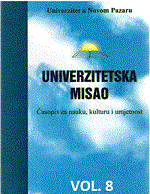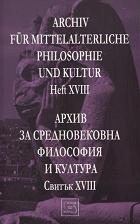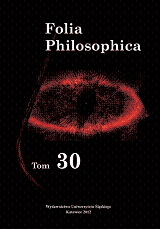
SPOZNAJNA TEORIJA KARLA POPPERA
Autor je u ovom radu ukazao na specifičnost učenja jednog od najvećih filozofa nauke uopšte i zasigurno najvećeg teoretičara epistemološke misli u XX stoljeću, Karla Poppera. Baviti se problemom istinitosti naših znanja i posebno naučnih jeste od izuzetnog značaja za nauku i metodologiju, koja uporno traga za onim načinima koji će nam pružiti najbolje rezultate u tom procesu čovjekove aktivnosti. Mogućnost da se na osnovu kritičkog pristupa sagleda bilo koja teorija jeste onaj kvalitet bez kojeg se na nauku ne bi moglo niti smjelo gledati. Želja da se naučna spoznaja odredi kao apsolut ili kao jedini oblik sigurnog znanja izrodila je cjelokupnu kontraverzu filozofsko-epistemološke misli i sukobljavanja oko tako imaginarnih fenomena kao što su: istina, nauka, rast naučnog znanja, pseudonauka, metafizika, sloboda volje, konvencija, društveni inženjering. Bitnost Popperovog učenja, koja se obrađuje u ovome radu, upravo se ogleda u pristupu koji ne želi verificirati nikakve istine, već se cjelokupna metodološka aktivnost koju predlaže Popper zasniva na pokušajima opovrgavanja naučnih teorija koje se, možemo reći, na darvinistički način bore za svoje mjesto u naučnom sistemu, tako da one teorije koje više vrijede zauzimaju i bolja mjesta na osnovu kriterija koji se ogleda u tome da se svaka teorija mora podvrgnuti nemilosrdnim i, što je moguće, ozbiljnijim provjeravanjima i empirijskim testiranjima. Falibilistički pristup u nauci ima izuzetno mjesto, posebno kada su u pitanju složeniji naučni sistemi, tako da u sadejstvu sa drugim metodološkim pristupima može biti itekako plodotvoran.
More...


